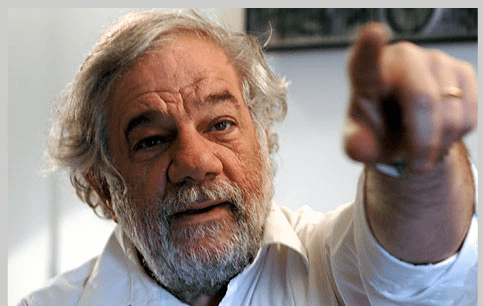Prominent Arab American civil rights attorney Abdeen Jabara, 85, has donated an endowment of $100,000 to the University of Michigan-Dearborn’s Center for Arab American Studies.
This donation will enhance student-led research, internships and coursework at the center as well as at the Arab American National Museum. The endowment will also establish the Holly Maguigan and Abdeen M. Jabara Scholarship Fund. U of M-Dearborn students who are conducting research, engaging in internships at the center, taking courses or participating in Arabic translation internships with the Arab American National Museum, have the opportunity to receive this scholarship. It is based on their academic achievement along with engagement in and commitment to social justice.
“I’m honored and thrilled to be able to participate in the educational endeavors at U of M-Dearborn,” Jabara said.
Jabara was born in 1940 to immigrant Lebanese parents in Mancelona, Michigan. He attended the University of Michigan, where he earned his bachelor’s degree in 1962 before attending Wayne State University Law School, where he founded the Law Student’s Civil Rights Research Council. Studying world affairs, he also graduated from the Institute of World Affairs in Salisbury, Connecticut.
“This gift underlines the significance of research in Arab American studies, as well as the importance of Arabic translation, and strengthens the ties U of M-Dearborn has with the Arab American National Museum through meaningful research and translation projects,” said Wessam Elmeligi, director of CAAS and of U of M-Dearborn’s Arabic translation certificate program. “Our students are fortunate to receive such support and be inspired by the long-standing contributions and commitment of Abdeen Jabara to enriching our community and our university.”

Throughout his career — and in his own fight for justice — Jabara’s commitment to upholding the constitutional rights and liberties of all people has always remained paramount.
Jabara’s legal career
His legal career began in Detroit. He served as a cooperating attorney with the Detroit Metropolitan Branch of the American Civil Liberties Union. Representing Arab American clients and other individuals who were the targets of federal agencies, his advocacy for the Arab American cause has always been an integral piece of his work. He was a founding member and former president of the American-Arab Anti-Discrimination Committee (ADC), a group focused on tackling prejudice and bias against Arabs and protecting their civil rights. It remains today as a leading civil rights organization for Arab Americans.
Serving on the board of the Center of Constitutional Rights and leading within the National Lawyers Guild, Jabara has remained committed to social justice as these roles focused on international human rights issues and marginalized communities.
Much of Jabara’s work, including legal work, his papers, records of his activism and his involvement in civil rights cases are archived at the University of Michigan’s Bentley Historical Library.
Fighting illegal government surveillance
In the 1970s, Jabara learned that he was being spied on by the National Security Agency (NSA) and the FBI. “Operation Boulder”, a program launched in the Nixon presidency, was a federal investigation of Arab Americans and Arab immigrants in the United States. Jabara, an Arab American attorney representing Arab American individuals, was subjected to this surveillance.
He filed a lawsuit in 1972 against the federal government challenging its illegal surveillance and violations of his constitutional rights (Jabara v. Kelley). In this historical case, the federal court ruled that the FBI infringed upon Jabara’s First and Fourth Amendment rights. The settlement required the FBI to discard all records and files it collected on him and acknowledge his lack of criminal conduct. In an interview with Democracy Now! in 2013, Jabara said that those expunged files, collected by the FBI, were sent to three foreign governments and 17 domestic agencies.
Furthermore, the NSA was also required to admit it was surveilling an American citizen without a warrant.
Throughout his career — and in his own fight for justice — Jabara’s commitment to upholding the constitutional rights and liberties of all people has always remained paramount. His endowment to the University of Michigan-Dearborn’s Center for Arab American Studies stands as an extension of his advocacy for Arab Americans and their longstanding pursuit of equity.






Leave a Reply